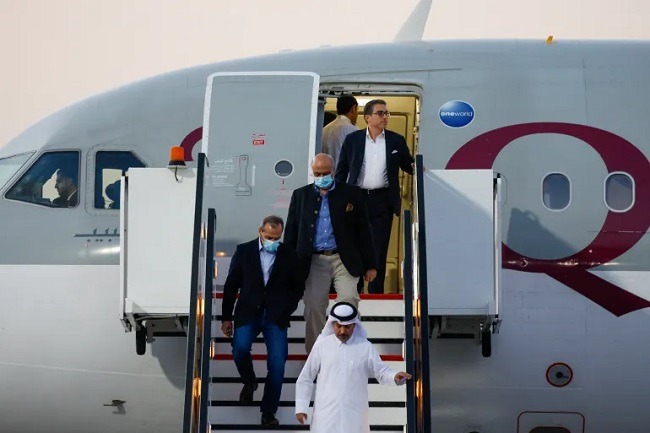The US said Siamak Namazi, Morad Tahbaz and Emad Shargi were imprisoned on baseless charges
The other two prisoners did not wish to be named.
The five Iranians released as part of the deal were mostly imprisoned in the US on charges that they violated US sanctions.
In a statement on Monday, US President Joe Biden welcomed the prisoner swap and said that the Americans would be reunited with their loved one “after enduring years of agony, uncertainty, and suffering”.
At the same time, Mr Biden vowed to “continue to impose costs on Iran for their provocative actions in the region”.
“And as we welcome home our fellow citizens, I once more remind all Americans of the serious risks of traveling to Iran,” he added. “American passport holders should not travel there”.
The president’s comments came as the US announced fresh sanctions targeting former Iranian President Mahmoud Ahmadinejad and Iran’s intelligence ministry.
In a statement, one of the released prisoners, Siamak Namazi, said that he “would not be free today, if it wasn’t for all of you who didn’t allow the world to forget me”.
“From the bottom of my heart, thank you. Thank you for being my voice when I could not speak for myself and for making sure I was heard when I mustered the strength to scream from behind the impenetrable walls of Evin Prison,” he added.
The Iranian funds released as part of the deal were owed by South Korea to Tehran for oil bought before Trump administration sanctions in 2019 banned such transactions. The US has said that the released funds can only be used for humanitarian purposes.
The return of the money, however, has sparked controversy in the US and come under intense criticism from some of Mr Biden’s political opponents.
Several prominent Republicans have expressed concerns that Iran will use the money to back proxy groups in the Middle East.
The US government has downplayed these concerns.
Last week, State Department spokesman Matthew Miller said that the US treasury department has “strict oversight” on the money and that Washington “has the ability to police their use”.
A senior administration official also told reporters that the US will move to block the funds if Iran tries to divert them or use them for anything other than humanitarian purposes.
BBC









